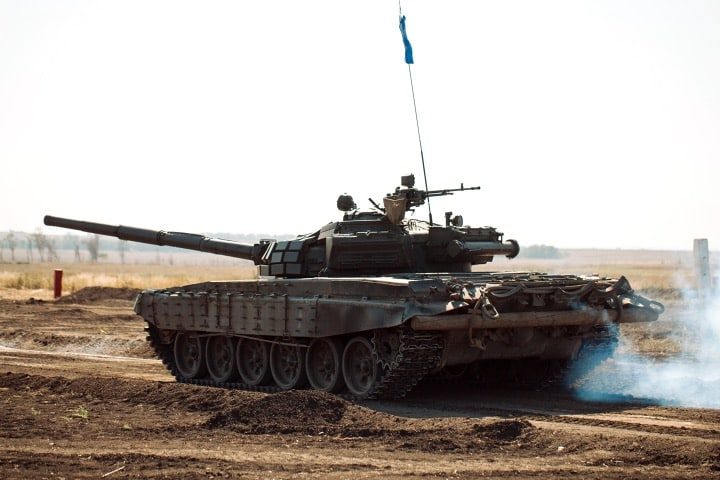
On June 19, The New York Times (NYT) published an article stating that the Kyiv regime under Ukrainian leader Volodymyr Zelensky has failed to account for “hundreds of millions” of dollars’ worth of military arms that have not been delivered, uncovering major problems throughout the supply chain of Ukrainian forces.
“Ukrainian government documents show that as of the end of last year,” Kyiv’s leaders “had paid arms suppliers more than $800 million since … February 2022 for contracts that went completely or partly unfulfilled,” said the Times.
A deputy Ukrainian defense minister working on weapons procurement supposedly authenticated the news report, saying, “We did have cases where we paid money and we didn’t receive.”
Additionally, some of the weapons donated by Ukraine’s allies have been of such poor quality that they were regarded as suitable merely to be used for spare parts.
The NYT mentioned a video of a “recent delivery of 33 self-propelled howitzers donated by the Italian government [that] showed smoke billowing from the engine of one, and engine coolant leaking from another.”
In turn, Italy’s Defense Ministry asserted that the vehicles in the video were known to have been decommissioned some time back, but the Kyiv regime insisted on obtaining these vehicles.
The ministry elaborated that the weapons were always meant “to be overhauled and put into operation” in light of “the urgent need for means to face the Russian aggression.”
Zelensky’s officials alleged in January that although they paid an American company to fix the malfunctioning howitzers, 13 of these weapons were still deemed “not suitable for combat missions” after they were received.
In a February letter to the Pentagon’s inspector general, Ukraine’s defense procurement director accused the Florida-based Ultra Defense Corporation of defrauding the Kyiv regime of millions of dollars, asserting that the weapons supplier obtained $19.8 million of Ukrainian government funds with “no prior intention to fulfill its obligations.”
Ultra Defense’s chief Matthew Herring vehemently denied Kyiv’s accusations.
“Every single one of them worked when we delivered them,” he reportedly claimed, before slamming the Ukrainians for not maintaining the weapons upon receipt. He singled out how one howitzer had a coolant leak which “magically appeared after delivery in Ukraine.”
The documents, supposedly the result of a government audit in 2023, “showed that some of the most valuable sets of undelivered contracts are between the Defense Ministry and state-owned Ukrainian arms companies that function as independent brokers.”
“In recent months, the ministry has sued at least two of those state firms over unfulfilled contracts, and Ukraine recently announced overhauls aimed at making those companies more efficient,” the Times reported.
Meanwhile, Russian Foreign Intelligence Service Director Sergei Naryshkin posited that Western countries intentionally zoomed in on the topic of Kyiv’s offensive in the media to justify the supply of weapons and ensure a consensus among NATO member states.
“It was important for the Westerners to promote the topic of the upcoming Ukrainian counteroffensive in the global information space. The obviously overestimated importance attached to it is an element of mental attack before the battle. In addition, the constant exaggeration of this topic allowed the Euro-Atlantic totalitarian liberal elite to justify the supply of weapons to Kiev and ensure the unity of NATO countries, many of which are already pretty tired of Ukraine and its president,” Naryshkin said.
He elaborated that many Western military analysts harbored reservations about the effectiveness of Ukraine’s offense, evaluating the tasks declared by Kyiv as “unachievable.”
Since late 2022, the Kyiv regime has been touting an offensive against Russian forces. While that offensive was first slated for the spring, the Ukrainian government postponed it to this year’s summer, claiming the rescheduling was owing to weapons shortage, while pressuring its Western allies to provide increasingly heavier arms, such as fighter jets, tanks, and drones.
Although Ukrainian troops unveiled a large-scale offensive in five sectors of the South Donetsk region on June 4, they failed to attain their goals, based on statements from Russia’s defense ministry. Afterwards, Russian media reports posited that Ukrainian troops had been unsuccessfully attempting to penetrate Russian defense lines in the Donetsk and Zaporozhye regions, suffering immense losses in armored equipment and manpower.
Zelensky, for his part, has claimed that Russia was scheming a “terror attack” on Ukraine in the form of a radiation leak, placing his countrymen on tenterhooks. The Kremlin has countered Zelensky’s claims, asserting that the latter were lies.
Nonetheless, Zelensky’s warning has sent many Ukrainians demanding iodine tablets, as iodine can help block the absorption of radioactive iodine. Consequently, iodine prices at many pharmacies have risen significantly.
However, in an attempt to urge Ukrainians not to panic, the Kyiv regime declared: “Read and share but don’t panic! Don’t play the enemy’s game. President Zelensky said nothing new. Russia is a terrorist country from which, like a monkey with a grenade, you can expect anything.”
In another statement, Ukraine’s health ministry cautioned about the negative ramifications of wrongly administering iodine, stating that it could even be fatal.
On June 23, UN nuclear chief Rafael Grossi was poised to head to Kaliningrad to meet with the head of Russia’s nuclear agency. Zelensky has also held a briefing with G-7 and G-20 representatives on the current situation, stating that the “full de-occupation” of the Zaporizhzhia plant by Russia is “a must.”
“We held a briefing for our partner countries on the situation at the Zaporizhzhia nuclear power plant. There were representatives of the G7 and G20 countries, as well as representatives of international organizations,” Zelensky’s Twitter read.


